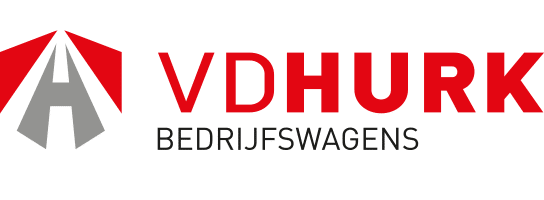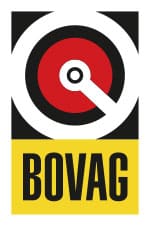Are there any tax advantages when leasing a double cab?
Yes, leasing a double cab offers interesting tax advantages for business owners. You can fully deduct the leasing costs from your profit, reducing your taxable income. For business use, you benefit from VAT deduction on the lease payments, and the addition for private use is often favourable when the double cab is classified as a van. This combination makes leasing fiscally attractive for sole traders and SMEs who want to finance their company car smartly.
What are the tax advantages of leasing a double cab?
Leasing a van double cab gives you three major tax advantages. Your leasing costs are fully deductible as business expenses, reducing your taxable profit. You can reclaim the VAT on your monthly lease payments if you are a VAT entrepreneur. And with business use, you pay little to no additional taxable benefit for private use, especially if your double cab is considered a van by the tax authorities.
For sole traders and SME entrepreneurs, this means concretely that your monthly expenses will be lower than they seem. Say you pay €500 a month for your lease. As an entrepreneur, you deduct this amount from your profit, effectively saving around 37% in tax (at the highest rate). So you actually pay around €315 per month.
The difference between business use and private additional taxable benefit is important. With full business use, you do not have to pay any additional taxable benefit at all. If you also use the double cab privately, then the additional taxable benefit depends on how the tax authorities classify your vehicle. A double cabin that counts as a delivery van has a low additional taxable benefit of only 2,700 euros per year. This is much more advantageous than passenger cars, where you have to add a percentage of the catalogue value.
Interest under financial lease is also tax deductible. With an interest rate of around 9.5%, the investment deduction of 28% gives you an effective interest rate of around 6.2%. This makes leasing more financially attractive than it seems at first glance.
How does the additional tax liability work for a leased double cab?
The additional tax rate for a leased double cab depends on whether your vehicle is considered a van or a passenger car. For a van, you pay an fixed addition of 2,700 euros per year, regardless of the value of your double cab. With a passenger car, you pay 22% of the catalogue value per year as an additional tax. This difference can save thousands of euros per year.
The tax authorities look at specific criteria to determine whether your double cab qualifies as a van. Your vehicle must meet these conditions: the cargo area must cover at least 50% of the total floor area, the cargo area must be separated from the cab by a fixed wall or trellis, and the cargo area must be freely accessible without moving seats.
For many modern double cabs, this classification is not automatic. Some models have a cabin that is too large in relation to the cargo area, resulting in them being classified as passenger cars. This has major tax implications. A double cab with a list value of 40,000 euros will cost you an additional 8,800 euros per year as a passenger car, while as a van you will pay only 2,700 euros.
You can check in advance whether your desired double cab counts as a van by checking the RDW data. If it says “van” or “company car” by the vehicle, you will benefit from the low additional taxable benefit. If in doubt, you can request a final assessment from the tax authorities before leasing.
What VAT benefits do you get when leasing a double cab?
As a VAT entrepreneur, you can reclaim VAT on your lease payments, reducing your monthly expenses by 21%. For a lease amount of €500 per month, you effectively pay €413, as you get €87 VAT back via your VAT return. This benefit applies to both financial leasing and operational leasing, as long as you use the double cab for business.
The difference between financial and operational leases for VAT purposes is limited. With both forms, you can deduct VAT on the monthly payments. At financial lease you own the vehicle from the first payment and the car is on your balance sheet. The VAT deduction works the same, but you have more flexibility in how you depreciate and use the vehicle.
Maximise VAT benefits by using your double cab for business purposes only. In case of mixed use (business and private), you can only deduct the VAT on the business part. The tax authorities are critical of private use of company cars, so make sure you can substantiate this with a trip administration.
Note that you cannot reclaim VAT if you are not a VAT entrepreneur or if you use the small entrepreneurs scheme (KOR). In those cases, you pay the full lease amount including VAT, which makes leasing less attractive. However, VAT deduction is possible for most entrepreneurs with a double cab van, as they are VAT liable.
When is leasing more fiscally advantageous than buying a double cab?
Leasing is more fiscally advantageous when cash flow is important to you and you don't want to invest a large lump sum. When you buy, you pay a large amount immediately, while with leasing, you pay a fixed monthly amount that is fully deductible. You keep liquidity in your business for other investments or unexpected expenses.
From a depreciation perspective, leasing also has advantages. When buying, you have to depreciate the double cab over several years according to fixed rules, making your administration more complex. With leasing, you simply deduct the full monthly amount as business expenses. This is simpler and gives you an immediate tax advantage, rather than spread over years.
Operational costs also play a role. With financial leasing, you pay a fixed monthly amount with a fixed interest rate throughout the term. You know exactly where you stand and can budget easily. With purchasing, you have to deal with depreciation, unexpected repairs and varying maintenance costs that are harder to predict.
Buying can be more advantageous if you want to keep the double cab for a long time and you have enough capital. After full repayment, you will have no monthly costs except maintenance and insurance. For business owners who use their company car for at least 8-10 years and do not value a newer model regularly, buying is more financially attractive in the long run.
The choice depends on your situation. Growing companies that prefer to invest their capital in their core business often choose leasing. Established entrepreneurs with sufficient reserves and a preference for ownership are more likely to choose purchase.
How Van Den Hurk helps with tax-efficient double cab leasing
We will help you choose the right lease structure to suit your tax situation and business needs. With more than 60 years of experience in commercial vehicles, we understand exactly which tax aspects are important for entrepreneurs looking to lease a van double cab.
Our support consists of:
- Wide choice of double cabins - We always have 400 commercial vehicles in stock, including several double cab models classified as vans for optimal tax benefits
- Financial lease solutions - You become an owner from the first payment, with a fixed monthly fee and fixed interest rate throughout the term, so you know exactly where you stand
- Transparent explanation of costs - We clearly explain what you pay monthly, what VAT deduction is possible, and how the addition works for your specific situation
- Personal advice on tax issues - Our team will discuss with you which leasing structure best suits your business, taking into account cash flow, depreciation and tax benefits
- Flexible conditions - You can choose the term to match your amortisation period, and pay down as much as you like to reduce your monthly costs
We are also happy to arrange additional matters such as insurance with special conditions for commercial vehicles, where lettering up to EUR 2,500 is included as standard. We are happy to help you think about accessories and modifications that will make your double cabin fit in perfectly with your activities.
Want to know which double cab is fiscally advantageous for your situation? Contact us for a personal discussion. We will look at your wishes together, calculate the tax advantages and ensure that you can get started with a smart lease construction. Visit our showroom in Helmond or call us for expert advice on tax-efficient leasing.





